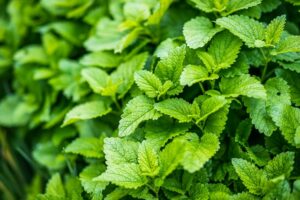7 Powerful Medicinal Herbs for the Peripheral Nervous System
The nervous system is composed of two main parts, the central, which consists of the cranial and spinal cord, and the peripheral, which consists of the nerves that exit the brain (specifically, 12 cranial nerves (emerging from the head) and 31 pairs of nerves from the spinal cord).
The importance of the peripheral nervous system for the functioning of the body
All nerves are responsible for transmitting stimuli from the brain to control and regulate the work of all organs, including muscles and bones, as well as response to stimuli received from the external environment.
This part of the nervous system is of great importance because it carries out the orders from the central and allows impulses to be transmitted, i.e. control over the functioning of the organs, as well as to make some voluntary action, for example, to be able to form and pronounce a word or thought, to make a movement and to react accordingly to an external stimulus (to avoid a blow, to retreat from a flame or other potentially dangerous stimulus).
The most common diseases of the PNS?
There are various types of diseases of the peripheral nervous system, and most often they have a traumatic nature (injuries to the nerves during an impact, fall, traffic accident, etc.), degenerative or inflammatory.
The most common conditions are sciatica (chronic inflammation of the sciatic nerve as a result of discopathy or herniated disc between the vertebrae of the spine), neuritis, plexitis, or neuropathies (nerve damage followed by pain, tingling, pricking or tingling, and most often occurs in people with diabetes).
But these diseases can also be due to infections or have an auto-immune nature, as in Guillain-Barré syndrome, where nerve damage is caused as a result of immune reactions.
The role of herbs in supporting the health of the peripheral nervous system
Herbs have been used for centuries as part of traditional, folk medicine for the healing and treatment of diseases and conditions of the nerves.
Today, both science and research show that there are useful plants that have soothing, analgesic, anti-inflammatory, and neuroprotective effects that can help both in the prevention and treatment of diseases of the nervous system.
People used them as folk remedies in the form of teas, tonics, tinctures, or balms that they rubbed on the skin to soothe pain and other unpleasant symptoms that occurred as a result of damage or disease.
Medicinal herbs to support the peripheral nervous system:
-
Ginkgo biloba
This herb improves peripheral circulation, both in the brain and in the nerves. With a good supply of oxygen and nutrients to the cells themselves, the neurons that make up the peripheral nervous system can function and regenerate better.
-
Grape seed
Grape seeds are rich in specific polyphenols that help prevent oxidative damage to nerves and prevent the accumulation of harmful substances that can interfere with the control and function of motor neurons that control movement.
-
Ginseng
Ginseng is good for calming inflammation and maintaining memory, but also for calming neuropathic pain and inflammation of the nerves.

-
Lemon balm
This herb contains eugenol, which helps calm nerve pain, relaxes muscle spasms that can cause nerve compression, and helps calm the body.
-
Valeriana
Valerian has a scientifically proven calming and relaxing effect on the brain. It has a sedative effect and helps in falling asleep.
-
Passionflower
This herb helps soothe neuropathic pain in the peripheral nerves but also acts as a sedative and anxiolytic to calm anxiety and depression.

-
Lavender
Lavender is well known for its ability to relax and calm a person, helping them to relax, fall asleep, and reduce stress.
Ashwagandha, chamomile, Malme herb, and other herbs have similar calming effects and natural support in dealing with stress. All of these herbs taken as teas or tinctures can help relieve pain, and protect and improve nerve function.














Post Comment